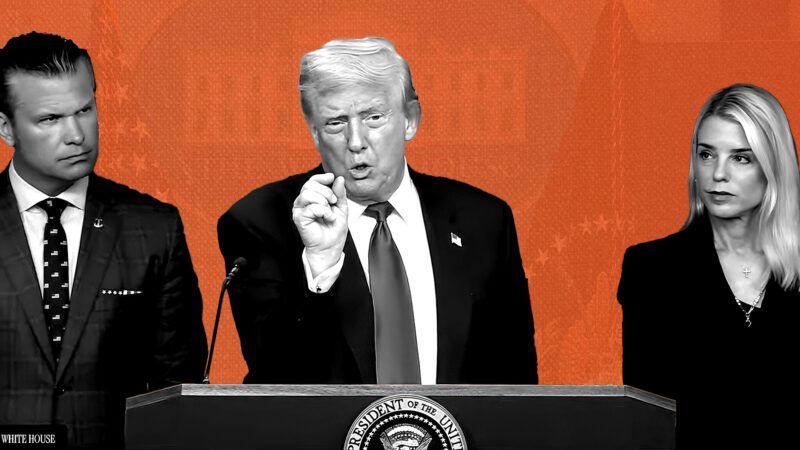Hostile Takeover: Trump Federalizes Law Enforcement and Deploys National Guard in D.C.
Despite an apparent drop in the city’s violent crime, President Donald Trump announced a “public safety emergency” in D.C., deploying 800 of the city’s National Guard and over 450 federal law enforcement officers.

President Donald Trump declared "Liberation Day in D.C." on Monday, announcing a "public safety emergency." The president will place the city's Metropolitan Police Department (MPD) under federal control and deploy 800 D.C. National Guardsmen to "establish law order and safety" in the city. The announcement came in response to last week's assault and robbery of Edward "Big Balls" Coristine, a former engineer for the Department of Government Efficiency.
Blaming the city's "abject failures of the city's leadership," the president specifically called "no cash bail" policies a disaster and vowed to challenge such policies nationwide, beginning with Chicago. Referring to "slums" and "caravans of mass youth" as he advocated more forceful police tactics, Trump appeared to contradict himself, painting the city's 3,500 officers as insufficient while calling a request for more officers "ridiculous."
The White House also announced that the president signed two executive orders. One authorizes the National Guard in D.C. due to a "crime emergency," including his notification to Congress and Washington, D.C., Democratic Mayor Muriel Bowser. The other allows Defense Secretary Pete Hegseth to deploy the National Guard in D.C. and coordinate with state governors for additional guardsmen.
As part of the emergency declaration, Attorney General Pam Bondi will take command of the MPD and Drug Enforcement Administration (DEA) chief Terri Cole will serve as the interim federal commissioner of the MPD. Trump claimed there would be "full seamless integrated cooperation at all levels of law enforcement," with an "overwhelming presence" of officers and FBI agents visible across the district.
Hegseth confirmed that the Trump administration may bring more military forces in, including "other national guard units" and "other special units." Trump also floated the possibility of "servicemembers directly joining the guardsmen."
Trump previously deployed the National Guard to D.C. in 2020, during the George Floyd protests. The detachment included more than 4,500 National Guard members, some of whom came from other states, including Florida, Missouri, Mississippi, and Utah. In June, Trump dispatched the California National Guard to Los Angeles in response to riots and protests against the ongoing immigration raids in the city.
More than 450 federal law enforcement officers from various agencies have already been deployed to "high-traffic D.C. areas and other hotspots" during the weekend, according to USA Today. DEA agents have also been seen patrolling the National Mall.
Under the Home Rule Act of 1973, residents of D.C. elect their mayor and city councilmembers. But Congress still reviews all legislation before it becomes law and controls the city's budget.
The D.C. National Guard, unlike its counterparts in the states, is directly under the control of the president, and Section 740 of the Home Rule Act gives the president the power under "special conditions of an emergency nature" to take control of the MPD. These services cannot extend beyond 48 hours unless the president notifies the chairman and the ranking minority members of the congressional committees that oversee the city. He must make this notification in writing, stating the reason for the extension and the anticipated duration.
While an MPD commander is currently under investigation for allegedly manipulating crime statistics, the data we have from the MPD back up recent reports of crime decreasing nationwide. Data released Monday also indicate a 26 percent decrease in violent crime year over year.


Show Comments (230)